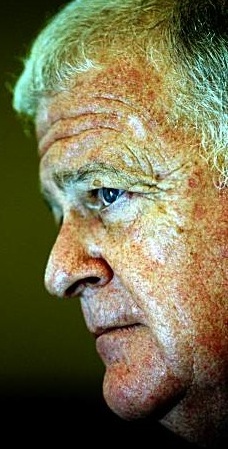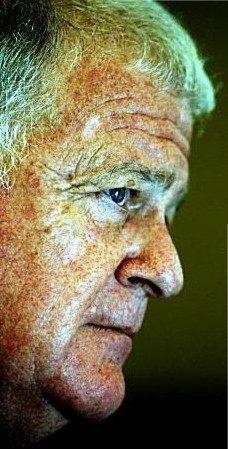By Tammerlin Drummond
Tribune Columnist
Oakland Tribune
October 4, 2010
THE OAKLAND Campaign Reform Act was supposed to prevent big money from having undue influence in local elections.
Passed in 1999, it set a voluntary spending limit that is now $379,000 for mayoral candidates.
Independent expenditure committees -- political groups that spend $1,000 or more, are limited to a $95,000 max.
At the time, the law's drafters, which included the League of Women Voters and other civic organizations that promote better government, were concerned that a political group might exceed the $95,000 spending cap to attack a particular candidate.
A candidate in that instance, it was felt, would have a tough time defending himself if he were held to a $379,000 ceiling.
So, they included this provision: in the event an independent expenditure committee spends more than $95,000, all of the candidates would then be free to exceed their $379,000 ceiling.
Somehow, no one envisioned the flip side, that an independent expenditure committee could break the cap, setting off the trigger that would in turn enable a candidate it supports to circumvent spending limits.
Yet this is precisely what has happened in the Oakland mayor's race.
All 10 candidates initially agreed to comply with the voluntary campaign spending limits.
As of June 30, former State Senate leader Don Perata had spent most of his allowable money. He had just $55,000 he could spend with still four months to go before the Nov. 2 election.
But then, out of the blue, an independent expenditure committee called the Coalition for a Safer California sent a letter to Oakland's Public Ethics Commission.
The Sept. 16 letter claimed that the group had spent more than $95,000 in the mayor's race. Which, if true, meant the limits on all the candidates were off.
The Coalition, it just so happens, was created by Paul McKinney, who has worked on Perata's campaigns in the past. The group has received $155,000 in contributions from two independent committees controlled by the state prison guards union. The unions had paid Perata $409,000 through the June 30 filing period.
The only candidate who benefits from spending limits being lifted is Perata.
Perata confirmed Thursday that he has now exceeded the spending limit. He told this newspaper that City Attorney John Russo told him that, as far as he was concerned, the independent expenditure cap had been broken. Russo's spokesman Alex Katz immediately denied Perata's claim that the city attorney had given Perata the go-ahead to exceed spending limits.
Councilwoman Jean Quan, a mayoral candidate, has filed a complaint with the Public Ethics Commission, alleging that Perata has violated the campaign reform act.
Councilwoman Rebecca Kaplan, another mayoral candidate, also alleges Perata has broken the law. She asked the city attorney for a legal opinion as to whether in fact the expenditure ceiling for candidates had been lifted.
The opinion states that there is nothing in the law that gives any city official or body the authority to lift the candidate limits. The law simply says that the fact of the independent expenditures exceeding the $95,000 limit automatically triggers the lifting of the candidate limits.
In short, the law says nothing at all about who is supposed to verify whether a committee has exceeded spending limits. From a practical standpoint, there would be no way of determining whether the Coalition has exceeded the cap until it files spending statements with the City Clerk by law Oct. 5, as required by law.
Yet as fishy as the whole thing might appear, no evidence has been presented to support allegations by Perata's opponents that he colluded with the Coalition so he could blow through the spending cap, a charge that he has denied.
Kaplan and Quan tried an 11th-hour bid Thursday to get the council to tighten rules on campaign spending before the election. But members of the Rules Committee said it was up to the Public Ethics Commission, not the council, to look into campaign finance complaints.
Even if the Public Ethics Commission did decide to pursue Quan's complaint, the city's system for investigating campaign finance violations is so laborious, Oakland voters wouldn't know the results until long after the election.
All of which means, candidates and their supporters are free to violate the spirit, if not the letter of the law.
Return to top



